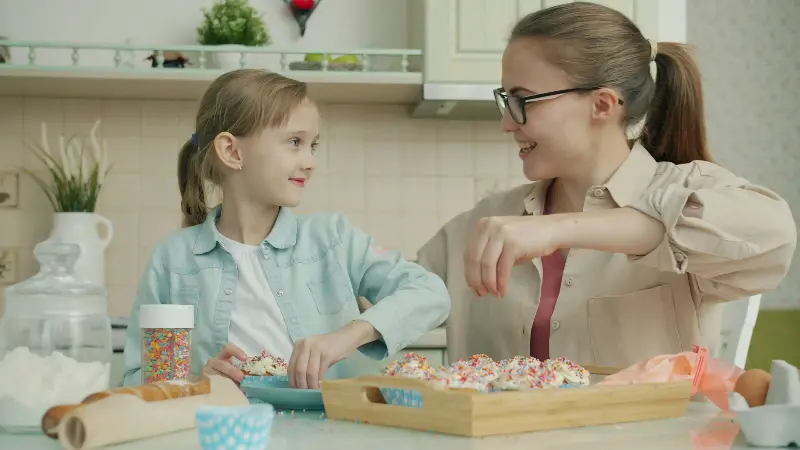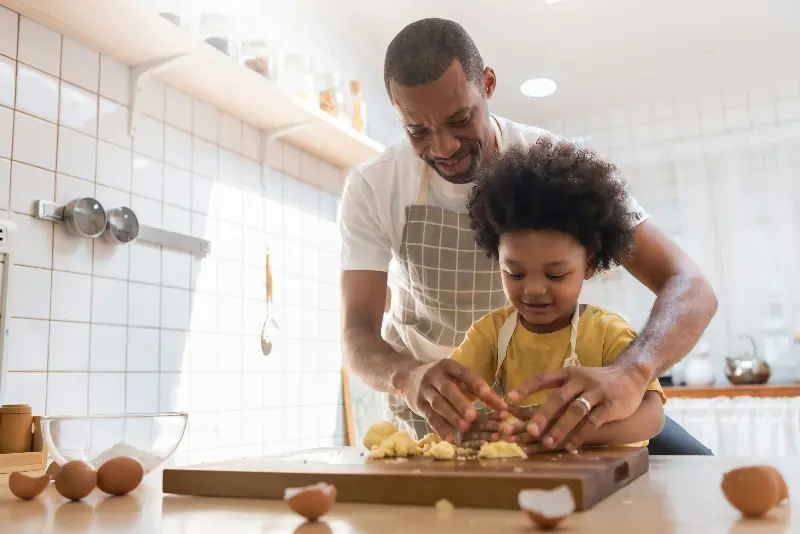
Stepping into the kitchen with your child isn’t just about teaching them how to scramble eggs or butter toast; it’s the birthplace of togetherness and confidence. If you thought family bonding demanded grand plans, think again. The kitchen—humble as it may seem—becomes a vibrant stage for scenes of laughter, teamwork, and communication growth, all woven seamlessly into your everyday routine.
As you guide little hands in measuring flour or cracking eggs, you’re nurturing more than culinary skills—you’re crafting fertile ground for open communication. Children thrive on feeling included, and before you know it, what starts as a simple recipe ends up being a memory, a ritual, and a confidence booster all in one.
Stir and Speak: Turning Recipes into Conversation
What makes the kitchen so uniquely powerful is its endless opportunity for dialogue. Every step in preparing a meal, from gathering ingredients to savouring that first bite, invites questions, explanations, and stories. As your child asks, “Why do we need baking powder?” or volunteers to taste the sauce, they’re engaging all their senses—and learning how to articulate thoughts, feelings, and observations.
In fact, these are golden moments to build communication, as the kitchen is inherently low-pressure and full of natural pauses. It’s easy to sprinkle in language and communication:
- Introduce new words (“This is cumin—it smells spicy!”)
- Encourage descriptive language (“Is the dough sticky or smooth?”)
- Prompt storytelling (“Remember when Grandma made pancakes?”)
- Practise turn-taking (“You add the milk, I’ll stir!”)
Through these rituals, children learn to express themselves freely, all the while wrapped in the warmth of parental attention.

Beyond the Recipe: Building Rituals that Last
Consistency is the secret ingredient in forging strong family bonds. By making simple kitchen moments a ritual—Saturday pancake breakfasts, evening salad-making, or even preparing lunchboxes—you lay a foundation for emotional security and candid conversation.
Rituals anchor families amid the rush of life, and children find comfort in knowing what comes next. Not only does repetition build proficiency in the kitchen, but it also invites even the quietest child to participate, voice opinions, and make suggestions as their confidence blossoms.
Here are easy rituals that double as communication platforms:
- Question of the Day: Ask a fun or thoughtful question while chopping or mixing, encouraging turn-by-turn sharing.
- Cooking Story Hour: Share stories linked to the dishes you prepare or invent stories about the food itself.
- Ingredient Adventure: Let children pick a new ingredient each week and talk about where it comes from or how it tastes.
From Messy Hands to Meaningful Connections
Don’t worry about kitchen messes or less-than-perfect breads. Each spill or misstep is a golden chance to model patience, laughter, and problem-solving. When things don’t go as planned, your reactions teach far more than any recipe ever could.
Remember, the goal isn’t Instagram-perfect bakes, but confident communicators who feel heard, respected, and part of a team. The smells, textures, and sights of the kitchen backdrop invite unhurried conversation and eye contact, nurturing an invaluable bond that outlasts flour-dusted countertops.
A Final Taste: What Will Your Ritual Be?
So, what simple ritual might you start in your own kitchen—a morning mug of cocoa, a no-fuss sandwich assembly, a fruit salad on Sundays? The beauty lies in how ordinary moments can become the cornerstone of extraordinary bonds and lifelong communication skills.
As you pour, mix, and taste together, you might just discover that the most nourishing ingredient is the connection you share, growing richer with every meal. What story will your kitchen tell next?
